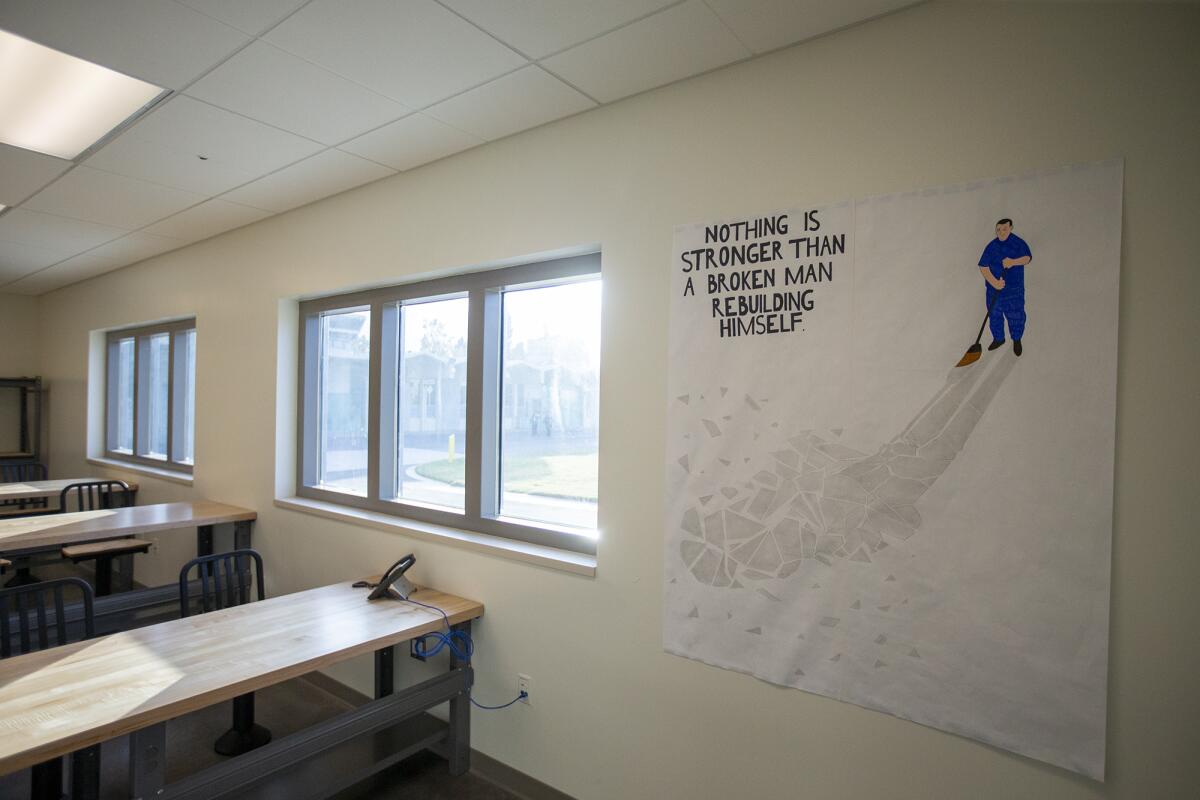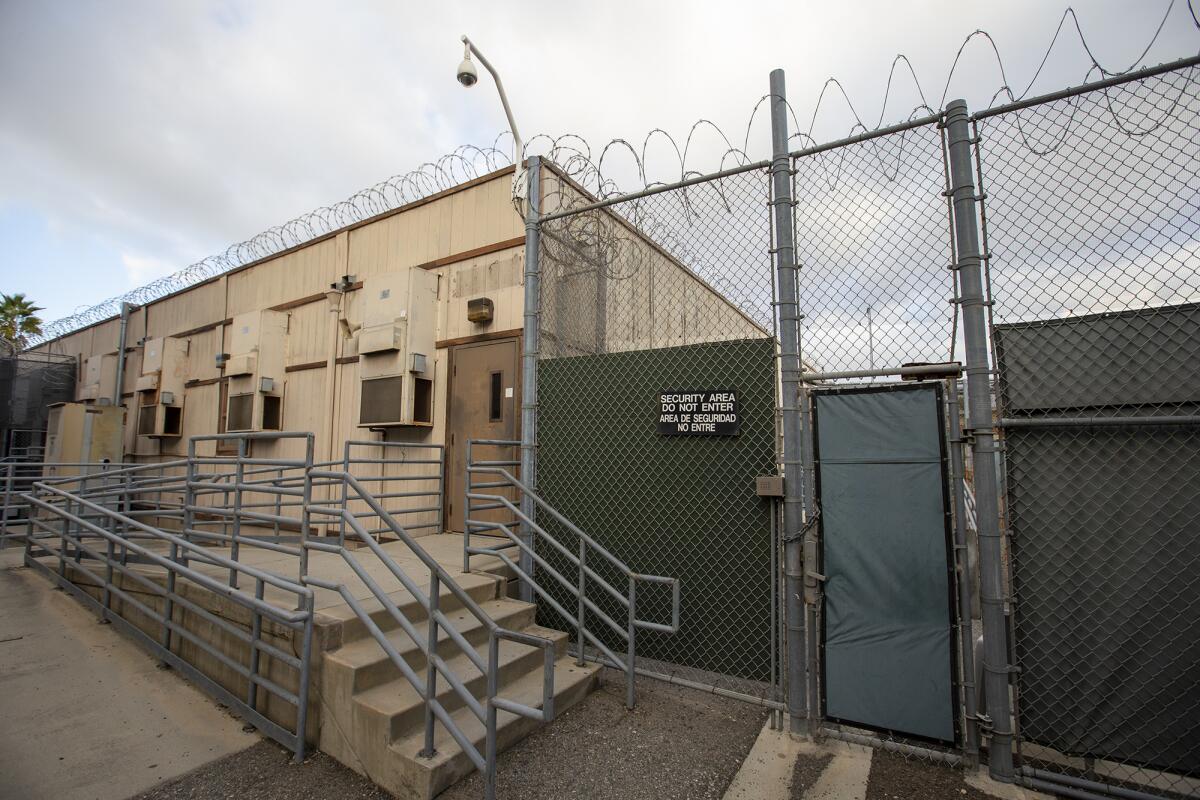Program serving as alternative to kids’ incarceration for minor crimes loses funding in 6 O.C. cities

- Share via
Grant funding for a program that serves as an alternative to incarceration for young first-time offenders of minor crimes in Costa Mesa, Newport Beach, Westminster, Orange, Tustin and La Habra ends Feb. 28.
A Youth Reinvestment Grant from the Board of State and Community Corrections had allowed the cities to contract with the nonprofit Waymakers for the past 3½ years. The organization runs initiatives to benefit victims of crimes and other campaigns in addition to youth diversion programs.
For the record:
9:26 a.m. Feb. 27, 2023An earlier version of this story misstated which communities had used a Youth Reinvestment Grant to contract with Waymakers’ diversion program. It has been updated to include Tustin among those cities.
Costa Mesa Police Lt. Ed Everett said the “services Waymakers offer are evidence based, community based, trauma informed and culturally relevant.”
The programs give kids and teens charged with misdemeanors like shoplifting, trespassing, vandalism, simple assault, theft or drug and alcohol use an opportunity to avoid the correctional system, the nonprofit’s chief program officer for youth development, Hether Benjamin, said.
Some of those minor offenses would be punishable by fines. Those ultimately shift the burden of responsibility to a teen’s guardians and teach practically nothing to a young offender, Benjamin said.
“Almost every youth that we work with doesn’t understand the impact of their crime, the negative impact their crime has on that person, that local business, that community,” she said.
Other cases might result in terms at juvenile hall. Benjamin said research shows kids who have been locked up are more likely to perform another crime in the future.
Recent laws protecting the privacy of minors with criminal records prevented her from sharing recent data on recidivism in youth who go through Waymakers’ diversion program. However, past studies showed that 85% of those teens did not commit future offenses.
“They get into more trouble, the more they are exposed,” Benjamin said. “They do need to be held accountable, but a lot of it is attached to poor decision making, getting in with certain crowds, and brain development.”

Waymakers’ approach is based on the concept of restorative justice and getting at the root of what might be causing a young person to turn to unlawful behavior, Benjamin said. Most are taken to a “peer court” where an actual judge presides over a jury of other teens who will go on to sentence an offender to counseling, community service or some other form of retribution and rehabilitation.
The diversion program also invites the victims of their crimes to come together face to face with youth for mediation. Not everyone who has been wronged may be open to those meetings, but when they happen they become a way to humanize the consequences of a young person’s actions and, sometimes, a chance for them to find forgiveness, Benjamin said.
“There are the times when we really can’t intervene because there’s something going on in the home, whether it’s child abuse, domestic violence, financial issues, bullying, unmanaged emerging mental health issues ...” she added. “Whatever that may be, this is an opportunity for us to change that direction, stop it before it gets too serious.”
The organization provides similar services to several other communities throughout Orange County. They had taken on between 1,000 to 1,200 kids each year in the past, Benjamin said. The number of cases they were managing dropped sharply during the COVID-19 pandemic and have been on a steady decline since then.
“It’s just slowly gone down over the years as the police departments have to put their attention to funding other things like specialty teams or paying overtime for officers or hiring new officers,” she said. “And the community programs seem to always be the first to get cut.”
Benjamin said most police departments have been supportive of the youth diversion program but have had varied success in finding money to keep it running. As of mid-February, Waymakers was in communication with the Costa Mesa and Westminster police departments about continuing the service.
“We believe strongly in positive juvenile diversion programs that foster healthy, fair and balanced opportunities for juvenile offenders to discover a better path in life,” Costa Mesa Police Chief Ron Lawrence said. “We value all of our youth and strive to help them find a bright future.”
Benjamin noted that it can cost a family around $300,000 a year to have a child go through court, incarceration or probation. She said a full-time diversion team costs around $150,000 annually to fund.
Kids currently enrolled in the program will be able to complete it even after the grant dries up, Benjamin and Everrett said. There are other organizations that offer youth diversion programs, but many of those require families to cover the cost.
All the latest on Orange County from Orange County.
Get our free TimesOC newsletter.
You may occasionally receive promotional content from the Daily Pilot.








